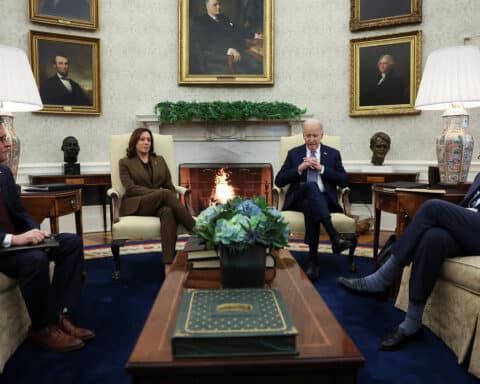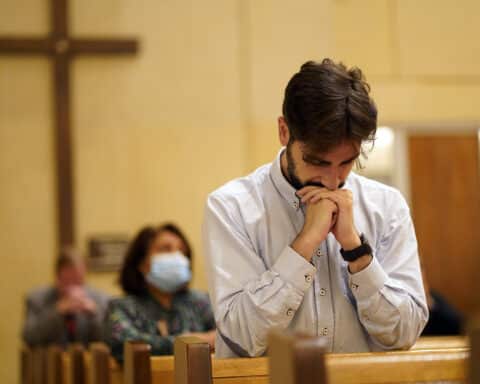
That’s not to romanticize either NYC history or the Catholic Republican. There was, after all, the Republican primary debate in New Hampshire in 2007 where lightning actually struck as Giuliani was asked a question about his position on abortion, causing fellow candidates to comically step away for fear of “God’s wrath” taking them out alongside Giuliani. And my friend and colleague at National Review, the late Kate O’Beirne, had the unforgettable line that primary season was “The First Wives’ Club” — noting the number of candidates on second and third marriages (and well-known stories of marital infidelities) vying to be the nominee for a party that waived a family-values banner.
This long aside is all to say: We are people with histories, and there are many layers to every story. Our attention spans are also short, and we collectively and frequently rarely take much time to think, never mind gather facts, before adopting a firm position on the latest controversy and pouncing. You could get whiplash trying to keep up with commentary during many of these news cycles. You cannot even begin to make a sensible comment, it seems — or insert an inconvenient fact or two — before the story is over.
And so it was with the recent debate over the chaplaincy of the House of Representatives. Father Patrick Conroy, SJ, was appointed by former Republican Speaker of the House John Boehner — who, as it happens, began his speakership talking about the need for a penitential posture in politics. As I understood the story from people on the Hill, as Boehner’s successor, Paul Ryan, approaches his retirement from Congress, the Wisconsin Republican had replacing the priest, six years in the position, on his to-do list.
While the conventional narrative became something else entirely, it was a pastoral, not political consideration — bringing additional fresh air to the House. Whether or not that was true was not something that got a chance to have a hearing in a winner-takes-all, left-versus-right showdown the story became. Americans United for Separation of Church and State said we shouldn’t have chaplains in Congress — less prayer seems the last thing the town needs — and the Democrats tried to reclaim some street cred with Catholics who care about Church teaching on abortion in swing states as Ryan was somewhat absurdly and disingenuously cast as a “Catholics-Need-Not-Apply”/anti-Catholic Know-Nothing throwback by some of the same people who frequently demean, dismiss and try to drive faith out of the public square (remember the Little Sisters of the Poor having to go to the Supreme Court to protect their religious liberty?).
For most of my life, I’ve wanted people to pay more attention to politics in the news. Now that it’s inescapable, my penitential prayer is for a renewed understanding of the tremendous power (and simplicity!) in virtue and the dangers of ideological colonization. We can afford to leave a lot less room in our lives — and headlines — for both the Devil and partisan mayhem to creep in.





